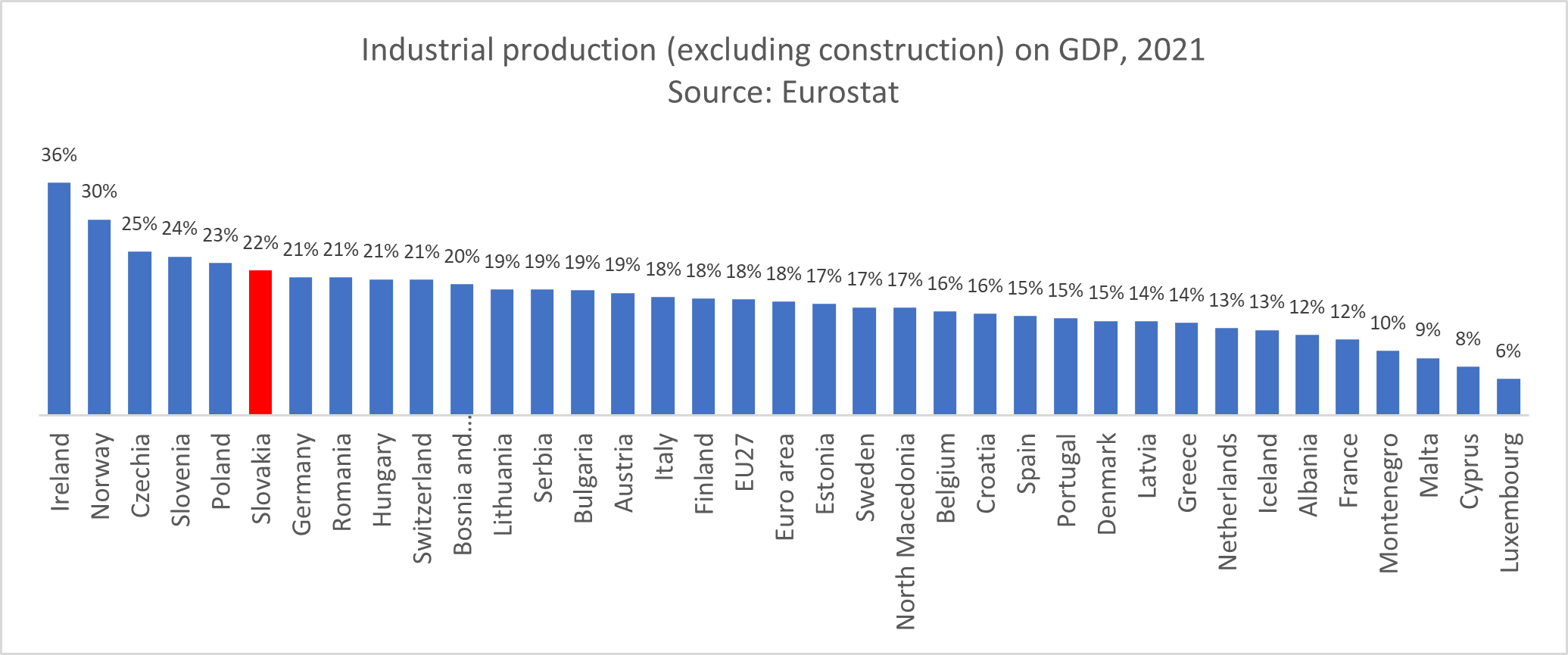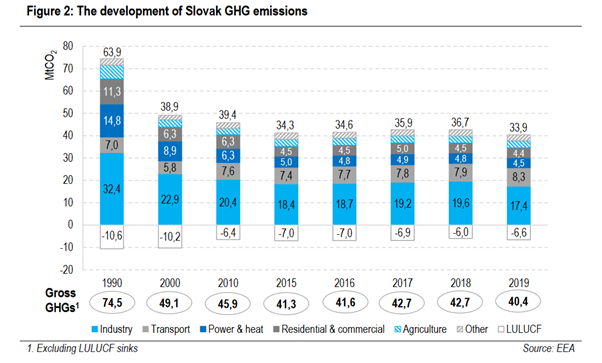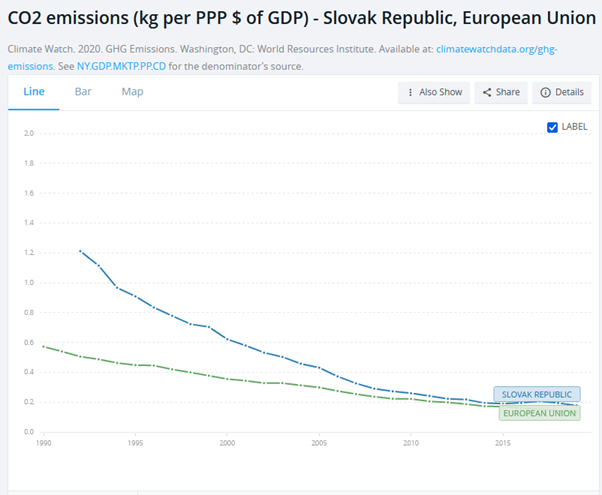The European Union (EU) produces around 8% of global greenhouse gas emissions. As a consequence, it has set itself a binding target of achieving carbon neutrality by 2050. As a step toward this goal, the EU has also raised its 2030 climate ambition considerably, by committing to cut emissions by at least 55% by 2030 relative to the 1990 levels (compared to a previous target of 40%).
These ambitions will inevitably have a serious impact on European economies – especially on industry. Therefore, let us inspect the current ‘emission environment’ in Slovakia, describe the proposed path towards reaching the carbon goals, and provide some critique.
Download full article: 04-MARTIN VLACHYNSKÝ EMISSION REDUCTION AND SLOVAK INDUSTRY
Emissions in Slovakia
Slovakia is one of the most industrialized countries in Europe, with industry (excluding construction) composing 22% of the gross domestic product [See: Figure 1].
Figure 1: Industrial production (excluding construction) on GDP (2021)
Similar to many post-socialistic economies in Europe, GHG emissions have significantly dropped in Slovakia since 1990. Slovak GHG emissions decreased by almost 40% between 1990-2000, and the decrease in emissions continued until 2015. This was caused by several factors: a decline of heavy industry during the transformation period, introduction of modern (cleaner) technologies, construction of two additional nuclear reactors (but with two older decommissioned in 2006 and 2008), power production decline in thermal powerplants, fuel switch in heating, and housing reconstruction with focus on energy efficiency.
Industry, power/heat, and residential/commercial sectors recorded the key GHG emission declines. Meanwhile, the transport sector observed slight gains, mainly due to a rapidly growing vehicle fleet in the country during the past thirty years[See: Figure 2]. The decline is more pronounced when compared to GDP [See: Figure 3]. When it comes to carbon intensity measured by emissions weighted by production (GDP), Slovakia falls into the average in Europe.






